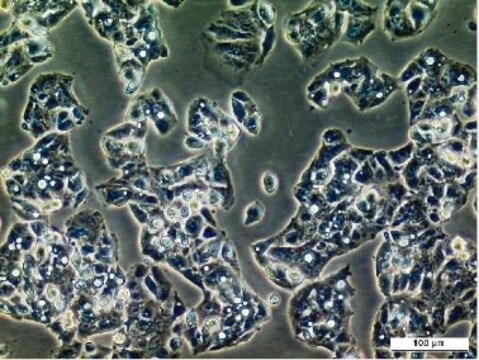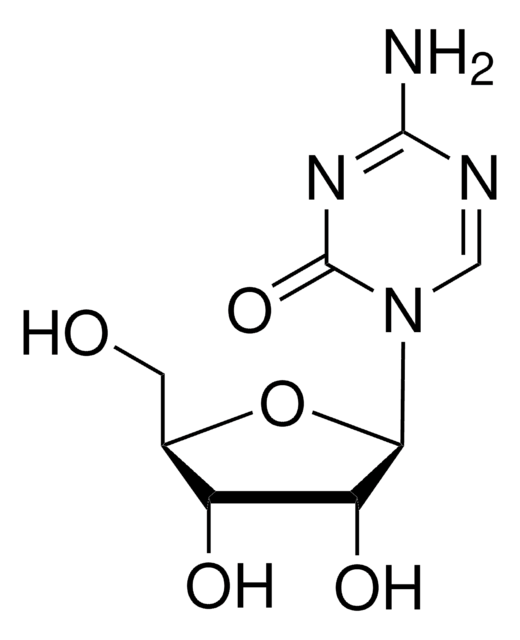LA-N-2
6041202, human nerve, Large elongated cells + small round cells in clusters
Anmeldenzur Ansicht organisationsspezifischer und vertraglich vereinbarter Preise
Alle Fotos(1)
About This Item
UNSPSC-Code:
41106514
Empfohlene Produkte
product name
LA-N-2, 06041202
Biologische Quelle
human nerve
Wachstumsmodus
Not specified
Karyotyp
Modal no. 73, range 46 - 73
Morphologie
Large elongated cells + small round cells in clusters
Produkte
Not specified
Rezeptoren
Not specified
Methode(n)
cell culture | mammalian: suitable
Relevante Krankheit(en)
cancer
Versandbedingung
dry ice
Lagertemp.
−196°C
Ursprung der Zelllinie
Human Neuroblastoma
Beschreibung der Zelllinie
Established by Seeger et al., (1977) from the primary site of a noncatecholamine-producing neuroblastoma of a 3-year-old female with clinical Stage IV neuroblastoma. The culture consists mostly of large, elongated cells with processes with some small round cells adhering to the elongated cells. The cells are tumourigenic in nude mice.
Nährmedium
EMEM (with non-essential amino acids) and Ham′s F12 (1:1 mixture) + 2mM Glutamine + 10% Foetal Bovine Serum (FBS)
Subkultur-Routine
For routine maintenance, split cultures after they have become dense i.e. once every 3-4 weeks at a 1:20 to 1:50 ratio; 8% CO2; 37oC. The culture consists of large elongated cells with processes and small round cells. The latter tend to grow in dense clusters on the former and detach readily. Most cells are moderately adherent. Remove attached cells from the substrate with trypsin/EDTA. Cells will detach in 5-10 minutes. When resuscitated from a frozen ampoule cells may appear dead after a day but reattach and resume growth within 2-3 days. Cells grow best and are most adherent on a plastic substrate in medium at a pH of 6.9 - 7.2; they do not tolerate more alkaline pH well. Cultures hold well at high density with periodic medium changes.
Sonstige Hinweise
Additional freight & handling charges may be applicable for Asia-Pacific shipments. Please check with your local Customer Service representative for more information.
Analysenzertifikate (COA)
Suchen Sie nach Analysenzertifikate (COA), indem Sie die Lot-/Chargennummer des Produkts eingeben. Lot- und Chargennummern sind auf dem Produktetikett hinter den Wörtern ‘Lot’ oder ‘Batch’ (Lot oder Charge) zu finden.
Besitzen Sie dieses Produkt bereits?
In der Dokumentenbibliothek finden Sie die Dokumentation zu den Produkten, die Sie kürzlich erworben haben.
Unser Team von Wissenschaftlern verfügt über Erfahrung in allen Forschungsbereichen einschließlich Life Science, Materialwissenschaften, chemischer Synthese, Chromatographie, Analytik und vielen mehr..
Setzen Sie sich mit dem technischen Dienst in Verbindung.




